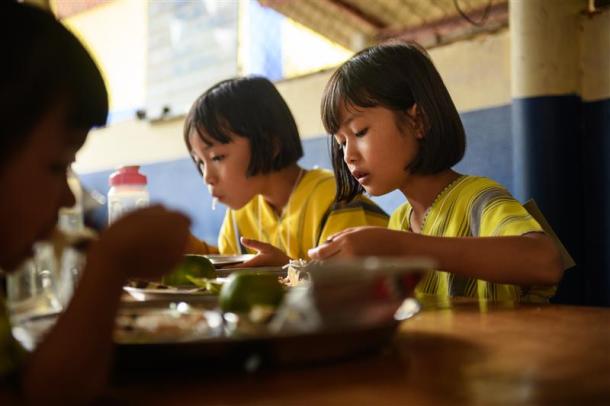UNESCO Releases “Education and Nutrition – Learn to Eat Well” Report
During the ‘Nutrition for Growth’ event hosted by France on March 27-28, 2025, UNESCO releases a new report highlighting meal quality. Titled Education and Nutrition: Learn to Eat Well, the report urged governments to enhance the nutritional quality of school meals worldwide. Despite nearly half of primary school pupils receiving meals, the report marks concern regarding their nutritional value. The need for balanced meals and food education is paramount for the health and learning of children.
Current Global Context
As of 2024, approximately 47% of primary school pupils globally benefited from school meals. However, the nutritional quality of these meals is often inadequate. UNESCO stresses that improving meal quality is essential for reducing child undernourishment and supporting academic performance. Studies indicate that nutritious meals can boost enrolment and attendance rates .
Key Findings of the UNESCO Report
In 2022, 27% of school meals were not designed with input from nutritionists. Only 93 out of 187 evaluated countries had any legislation regarding school food. Furthermore, just 65% of these countries had standards for food sold in cafeterias and vending machines.
Health Implications
The lack of regulation is concerning as childhood obesity rates have more than doubled since 1990. Concurrently, food insecurity remains a pressing issue. UNESCO argues that schools should encourage healthy eating habits rather than undermine them. This requires a shift towards fresh, locally sourced food options.
Successful Initiatives Worldwide
UNESCO marks several successful programmes aimed at improving school meal nutrition. Brazil’s national school feeding programme has limited ultra-processed foods. In China, the introduction of dairy and vegetables has improved nutrient intake in rural schools. Nigeria’s Home-Grown School Feeding Programme has increased primary school enrolment by 20%. India’s introduction of fortified organic pearl millet in Maharashtra has enhanced adolescents’ cognitive functions.
Recommendations and Future Actions
UNESCO calls on governments and education stakeholders to prioritise fresh produce in school meals and to reduce sugary and ultra-processed foods. The inclusion of food education in school curricula is also encouraged. Additionally, UNESCO plans to develop practical tools and training programmes to assist governments in integrating nutrition into education systems effectively.
Month: Current Affairs - March, 2025
Category: Reports & Indexes Current Affairs








